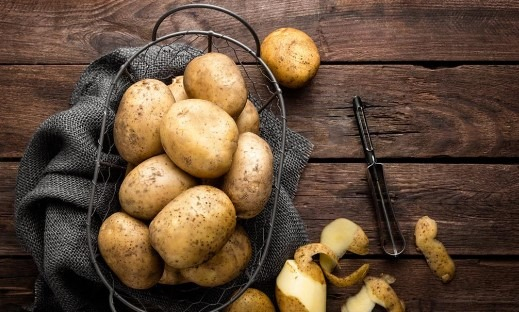A groundbreaking discovery has been made in the potato industry. As per a recent study featured in The Plant Cell, a prominent international society journal by the American Society of Plant Biologists, researchers have pinpointed a small genetic element responsible for a significant production issue in potatoes. This element, concealed within an intron of the potato vacuolar invertase gene, has been identified as the culprit behind “cold-induced sweetening” (CIS), a major challenge for the potato processing industry.
The phenomenon of CIS arises when potatoes, a staple food crop globally, undergo cold storage, typically done to prevent diseases, sprouting, and softening. However, cold temperatures trigger the conversion of starch into sugar within the tubers, leading to undesirable consequences such as the production of acrylamide and an unappealing dark brown-black color when the potatoes are fried after being removed from storage.
The study uncovered specific DNA motifs within the 200-bp sequence that bind to transcription factors involved in the plant’s response to cold stress. By mutating these sequences, the researchers observed a significant reduction in the cold-stress response in the potatoes.
This groundbreaking revelation not only addresses a longstanding agricultural issue but also paves the way for potential improvements through gene editing. Jiming Jiang, the Corresponding Author of the study, emphasized the significance of this discovery and its alignment with the goals of the potato breeding program at the Department of Horticulture, University of Wisconsin-Madison.
The findings of this study hold the promise of revolutionizing potato production and processing, offering a potential solution to the challenges posed by cold-induced sweetening, and opening new avenues for enhancing the quality and sustainability of potato cultivation.






